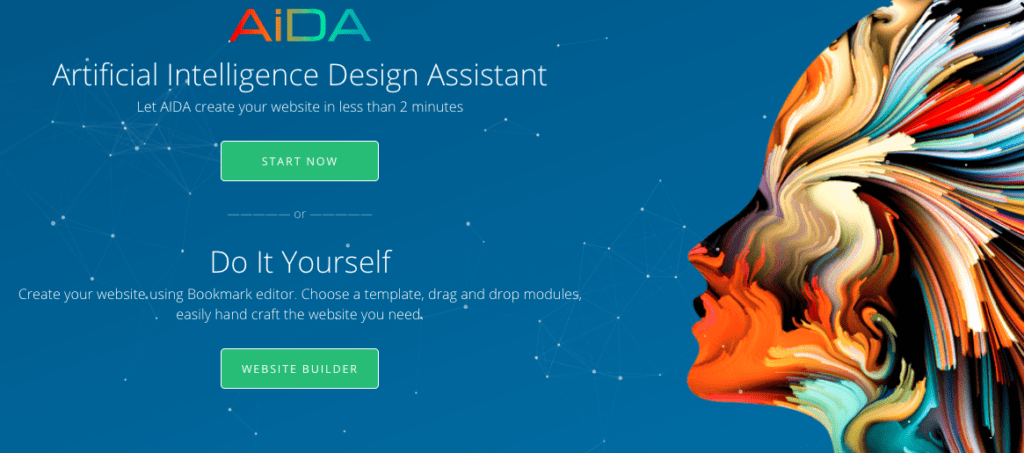WEB DESIGN: A LOOK AT THE FUTURE

When it comes to website design, it is hard — if not impossible — to accurately predict how things will be in the future. After all, wasn’t it just a couple of decades ago when video conferencing was just stuff invented by science fiction writers?
With constantly changing trends in technology, we will never really be able to predict how web design will turn out in 10 to 20 years. We don’t know if we’ll even have laptop screens or mobile phones by that time.
If there’s one thing we can expect to see though, it will definitely be Artificial Intelligence (AI). Given how AI is being used right now, we can expect it to affect many industries and sectors, including digital marketing, customer service, sales, and of course, web design.
The combination of the creative designer’s mind together with ever-evolving Artificial Intelligence is one that will surely disrupt the website design world as we know it.
What is Artificial Intelligence?
Most users today expect personalization at every level and in every industry. When it comes to website builders, for example, they want easy-to-use features and responsive layouts, user-friendly content, and a whole range of tricks that are being integrated to offer them a personalized experience.
This might be a challenge to achieve when users are building a website from scratch, but it can be perfectly executed with Artificial Intelligence.
AI has been used in many industries as a means to carry out different tasks, but in the realm of web design, it involves using computer programs to anticipate and solve user problems creatively.
The use of AI aims to simplify the difficult and time-consuming process of web design, such as choosing which elements go where, deciding on the website’s typography, and looking for appropriate and free-to-use photos and videos, among others.
With AI, web builder tools can now automatically process text, images, and URLs to form unique and functional websites. This provides a huge savings when it comes to money, time, and other resources, especially for technically-challenged users.
This move to automated personalization is fueled by user behavior, and it’s meant to assist the web design industry in creating an object-oriented design approach. Because of this, we can see web design becoming leaner, more focused, and coherent.
This change is not limited to web design alone, but video gaming technology, and even public transport systems are finding ways to make AI work for them.
One of the benefits of using AI in web design is that it has helped eradicate many of the technical barriers for the average person. Any non-techie user can now collaborate across different devices as they make their own custom website without knowing any advanced tech details.
Automated Web Design and Development
The development of AI has been fast and comprehensive. AI is quickly becoming an integral part of some of the products we consume every day. Eventually, everything including search engines, Facebook, and the iPhone will be powered almost exclusively by AI.
Many of the AI applications that users are familiar with happen to be the same apps that affect interaction such as speech and handwriting recognition to determine the best platform for each user and enhance user experience.
When looking at trends of how the future of website creation is going to be, one company stands out. A Toronto-based startup called Bookmark.com is building the future of website creation. They were even recently named to be the most innovative website builder.

The process of website creation with Bookmark is different from any of its competitors. Once a user signs up (it’s free), an AI software called AiDA (Artificial Intelligence Design Assistant) asks them a few questions about their business.
Based on the user’s answers, AiDA designs their website — tailored to their business or industry — and finishes in less than a minute. What makes it even better is that if the user doesn’t like the design, they can easily ask the AI software to rebuild the website until they are completely satisfied.
A Rising Challenge for Web Designers
Will the use of Artificial Intelligence in website design render the traditional web designer redundant?
Definitely not.
Rather, AI will empower designers worldwide to make sophisticated design decisions, leaving the minutiae of website design — whether it’s the color palettes to choose from or the style combinations and presentation of the website – to AI so that they can focus on other important aspects.
So, while it’s true that the playing field will change for web designers in the future, there’s also an opportunity for them to advance the way websites respond to user behavior, all in an effort to offer personalized experiences.
What is the Future of AI and Web Design?
Looking back to the 1990s, internet connection wasn’t perfect and web pages consisted of mainly plain pages of text and a few images, if any. There weren’t any stylistic buttons and font variations at all.
Fast-forward to today, surfing the web has become a seamless integrated experience for everyone. Thanks to coding systems such as jQuery, we have great combinations of audio and visual content that allow site designers to create an experience rather than paste a bunch of information for whoever lands on the website.
It doesn’t stop there. Millions of dollars have been spent by tech companies to find ways to take this user experience to the next level by designing websites that “read” user habits, preferences, and intentions and combine that information with search engine optimization for maximum conversion.
It is indeed exciting to see companies now already trying to build the future and are being innovative in the process. The AI used by Bookmark’s Website Builder, for example, is a game changer. Where else can you generate a professional-looking website within a few minutes?
However, who knows where we will be in 20 years? Some analysts predict that websites might not exist anymore in the next decade or so, and that websites will be replaced with ‘digital experiences.’